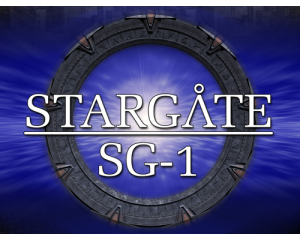Sep 08 2010
Stargate SG-1 and Universal Theory
1.) The book discusses semiotics and how the use of symbols can determine documentary analysis. Semiotics, the study of signs and symbols, is open to interpretation. Like the example given in the book, C-A-T has different meanings for different people. Do you interpret this as a domestic pet, or maybe the wild animals in Africa? My question regarding semiotics is this: if people will interpret things independently, is there a universal message construct that can be used to mean one thing only? How does culture impact this message?
I’ve started watching Stargate SG-1 in my free time (which has been non-existent lately) and I realized during one episode that I could apply this TV show to answering my first question.
In this episode of Stargate SG-1, Jack O’Neill and his team head out to a planet to recover a long lost man, Ernest. They find Ernest in a crumbling castle by the sea, where he’s been alone for 50 plus years. More importantly, the team discovers a meeting place of four alien races that are represented by four different languages written on the walls.
Then, the anthropologist Daniel Jackson makes a discovery. How are these four races able to communicate with each other?
Through a universal language.
This leads back to my question: is there a universal message construct that can be used to mean only one thing, and does culture impact this message?
I argue yes to both. Maybe our society isn’t that advanced yet, but I believe that it would be possible with a lot of discussion and cross-cultural study.
For instance, in this episode, these four alien races communicated by using an interactive map of elements from the periodic table. In the episode, Daniel Jackson argues these elements, combined or broken down, help make up everything that the world knows.
Therefore, we can conclude that this can be a universal language. Even if one race calls Hydrogen a different name, they still understand the component. By sharing their culture with other races cross communication can formulate.
Yes, people may remember things independently, based on what their culture has taught them, but this knowledge is transferrable to other cultures to help form a universal understanding.
As of now, there is no universal language to my knowledge. By universal language, I mean a single language that everyone knows how to speak. I’m hopeful that someday, there could be a true universal language. Imagine how that would help in foreign relations. Stargate SG-1 has given me hope.
Tags: response
